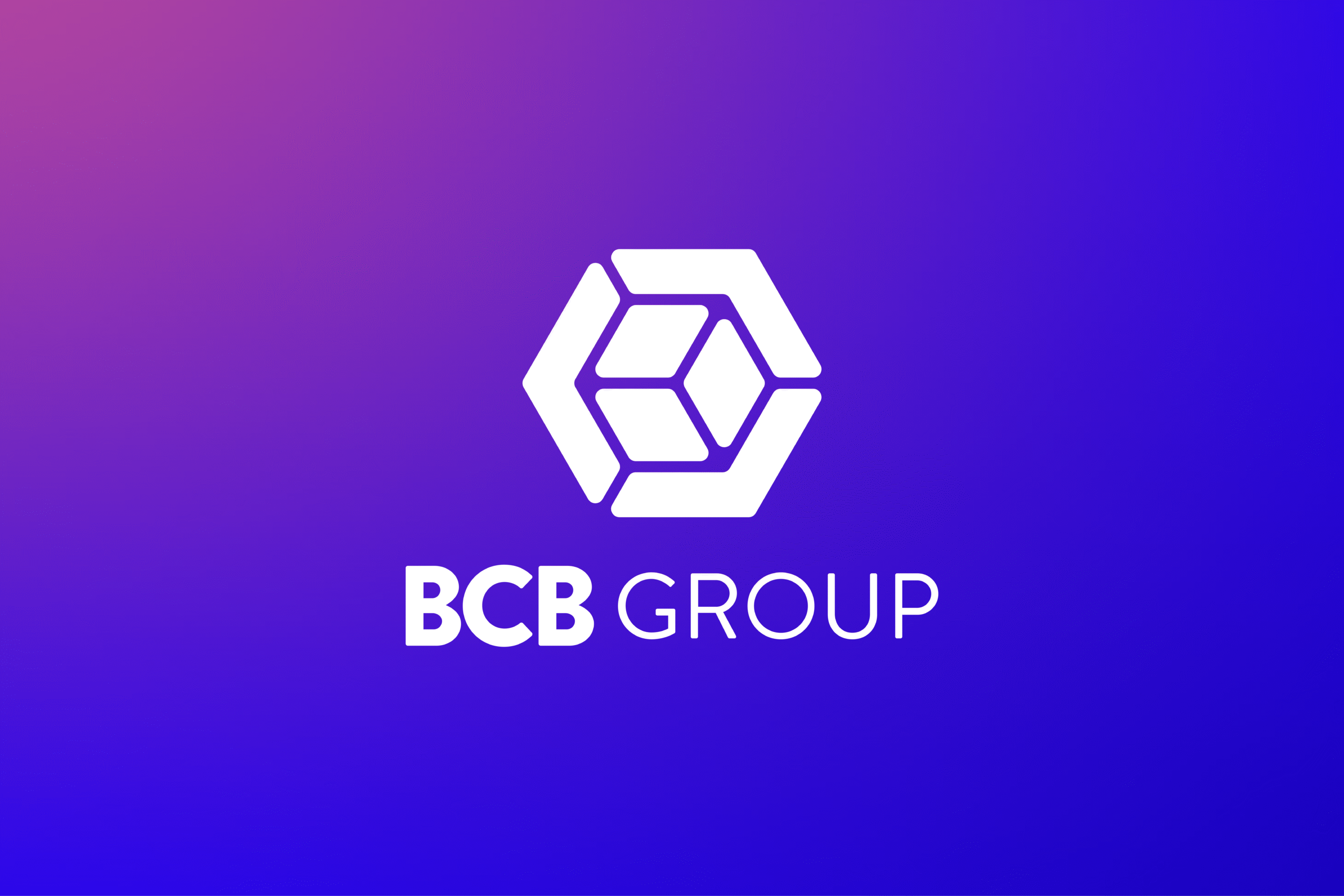BCB Group - Guides - Crypto payment gateway: how to choose the best solution for your business

Crypto payment gateway: how to choose the best solution for your business
Businesses worldwide are adopting digital currencies for payments and settlements. Faster processing, lower fees, and global reach make crypto a powerful tool for e-commerce, fintech, and international trade. A crypto payment gateway – the infrastructure that connects digital assets with business systems, is needed to access these benefits. But with so many providers available, choosing the right gateway can feel overwhelming.
This guide answers the key questions about crypto payment gateways, explains the differences between providers, and shows how businesses can select the right solution to grow securely and on a scale.
Table of Contents
- What is a crypto payment gateway?
- How does a crypto payment gateway work?
- Payment gateways vs payment processors – what’s the difference?
- What types of crypto payment gateways exist?
- What features should you look for in a secure crypto payment gateway?
- Are crypto payment gateways regulated?
- How do I accept crypto payments as a business?
- Which sectors benefit most from crypto payment processing?
- How long do crypto payments take to process?
- Which countries accept crypto as payment?
- What makes BCB Group’s payment gateway unique?
What is a crypto payment gateway?
A crypto payment gateway, as its name suggests, provides the entry point to the world’s payment networks. It enables companies to accept cryptocurrencies like Bitcoin, Ethereum, or stablecoins.
A crypto payment gateway verifies the payer’s details and connects the two sides of a transaction. It enables customers to pay in digital assets while businesses choose to receive settlement in either crypto or fiat.
For merchants, this removes the complexity of blockchain confirmations, wallet connections, and reconciliation. Instead, payments flow through a single, reliable channel.
Key benefits of a crypto payment gateway include:
- Lower costs compared with card networks
- Faster settlement of funds
- Wider reach across global markets
How does a crypto payment gateway work?
The process of using a crypto payment gateway is simple:
- A customer selects crypto as a payment method.
- The gateway generates a transaction request and validates it on the blockchain.
- The business chooses to receive settlement in crypto or convert instantly into fiat.
- Funds arrive in the merchant’s account or wallet, with reconciliation data included.
This automation allows businesses to scale globally without adding operational complexity.
Payment gateways vs payment processors – what’s the difference?
A payment processor moves funds between accounts. A payment gateway provides the merchant interface and customer-facing tools to enable payment processing.
In crypto:
- The processor validates transactions on the blockchain.
- The gateway manages the checkout experience, conversion, and settlement.
Some providers combine both, but the distinction helps businesses see where they gain value.
What types of crypto payment gateways exist?
Companies can choose from several types of crypto payment gateways. Each has strengths and trade-offs depending on scale, compliance needs, and technical capability.
Custodial gateways
- Pros: The provider manages custody and settlement, reducing operational burden. Often includes robust security and insurance.
- Cons: Merchants rely on the provider’s solvency and risk controls. Funds are not immediately accessible.
Non-custodial gateways
- Pros: Payments flow directly into the merchant’s wallet, giving complete control of assets—no counterparty risk from the provider.
- Cons: Merchants assume responsibility for private key security, reconciliation, and regulatory obligations.
Open-source gateways
- Pros: Highly customisable, with complete visibility of code. Ideal for firms with in-house developers seeking tailored integrations.
- Cons: Require significant technical expertise and ongoing maintenance—no external compliance support.
Third-party gateways
- Pros: Easy to deploy, with low technical barriers. Suitable for smaller merchants needing a quick solution.
- Cons: Dependence on an external provider for uptime, compliance, and settlement reliability.
Multi-asset gateways
- Pros: Support for multiple cryptocurrencies and fiat currencies, giving customers greater flexibility. Enable global reach and currency diversification.
- Cons: Can introduce added complexity in reconciliation and compliance if not managed through a regulated provider.
The right choice of crypto payment gateway depends on your goals. For SMEs, ease of deployment may outweigh advanced features. For institutions, regulatory compliance, multi-currency support, and operational resilience are non-negotiable.
BCB Group offers a regulated, multi-asset gateway that balances broad crypto and fiat coverage with institutional-grade compliance and custody. Clients can process payments securely, reduce risk, and maintain access to liquidity.
What features should you look for in a secure crypto payment gateway?
When choosing a provider, businesses should prioritise:
- Regulation – licensed and supervised in key jurisdictions.
- Security – encryption, cold storage, and audited infrastructure.
- Integration – APIs, e-commerce plug-ins, and treasury system compatibility.
- Liquidity – ability to handle large trades with minimal slippage.
- Currency support – covering the digital and fiat assets clients need.
Are crypto payment gateways regulated?
Unregulated crypto payment gateways still exist, but they expose businesses to significant risk. Using them can put merchants in conflict with domestic laws, create compliance gaps, and erode customer trust. Choosing a regulated provider, by contrast, reduces risk and signals credibility to clients and partners.
In most developed markets, crypto payment gateways must comply with anti-money laundering (AML), know-your-customer (KYC), and safeguarding requirements. Regulatory frameworks continue to mature across the UK, US, and EU. The EU has taken the lead with its Markets in Crypto Assets (MiCA) regulation, which came into force in 2025, setting a benchmark for how payment providers should operate responsibly.
How do I accept crypto payments as a business?
Steps include:
- Choose a regulated gateway provider.
- Integrate via merchant account, plug-in, or API.
- Decide settlement preference – crypto, fiat, or both.
- Connect to platforms such as e-commerce sites or invoicing tools.
Accepting crypto on a website
Many providers offer plug-ins for platforms like Shopify, Magento, or WooCommerce.
Accepting crypto in high-risk industries
For sectors such as gaming, trading, or affiliates, gateways offer compliant alternatives where traditional banks often restrict access.
Which sectors benefit most from crypto payment processing?
- E-commerce – fast international checkout with fewer chargebacks.
- Fintechs – seamless wallet integration.
- Exchanges and OTC desks – high-volume, low-latency settlement.
- High-risk industries – secure rails where fiat access is limited.
How long do crypto payments take to process?
Processing speed depends on the blockchain:
- Bitcoin: ~10 minutes.
- Ethereum: 15 seconds–5 minutes.
- Stablecoins (e.g. USDC on fast networks): near-instant.
Gateways often accelerate settlement by batch processing and offering same-day fiat conversion.
Which countries accept crypto as payment?
Global adoption varies widely. Many countries permit or tolerate cryptocurrency trading, while others have introduced clear frameworks that allow businesses to accept crypto under domestic financial rules. El Salvador remains the only country to recognise Bitcoin as legal tender, using it alongside the US dollar. Meanwhile, a small number of jurisdictions still impose strict limits or outright bans on usage.
Merchants should always verify regulatory status before launching services in new markets.
What makes BCB Group’s payment gateway unique?
BCB Group offers an institutional-grade gateway built for security, scale, and compliance.
Key strengths:
- Regulated across the UK, EU, and Switzerland.
- Supports 40+ fiat and digital currencies.
- BLINC instant settlement network for 24/7 transfers.
- API-driven integration for e-commerce and treasury systems.
By combining compliance with deep liquidity and advanced integration, BCB helps corporates, fintechs, and digital asset firms reduce counterparty risk while scaling payments globally.
Final thoughts
Crypto payment gateways are essential for businesses that want to cut costs, speed up global settlements, and access new markets. But the right gateway must also be regulated, secure, and scalable. BCB Group delivers exactly that – trusted infrastructure designed for institutions. To explore BCB Group’s crypto payment solutions, contact us today.






